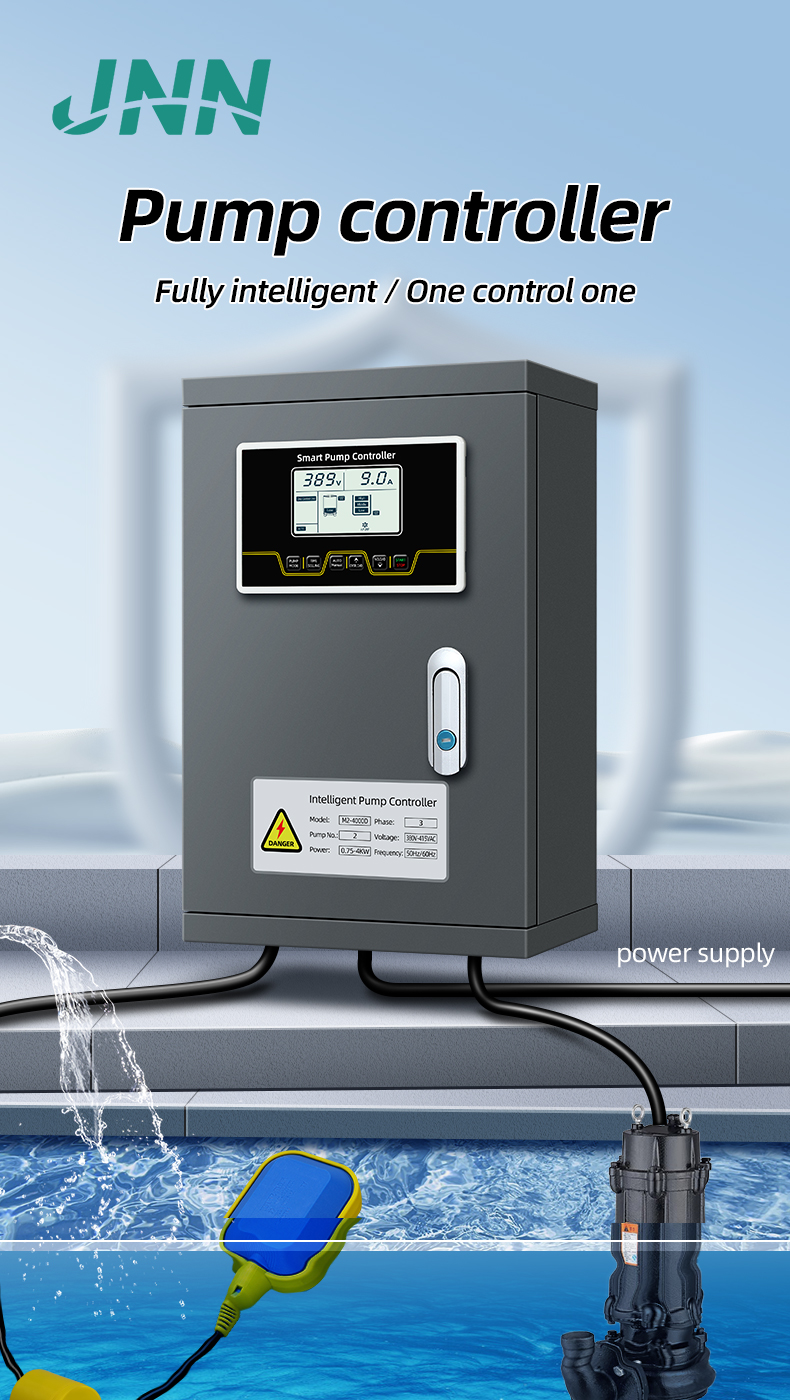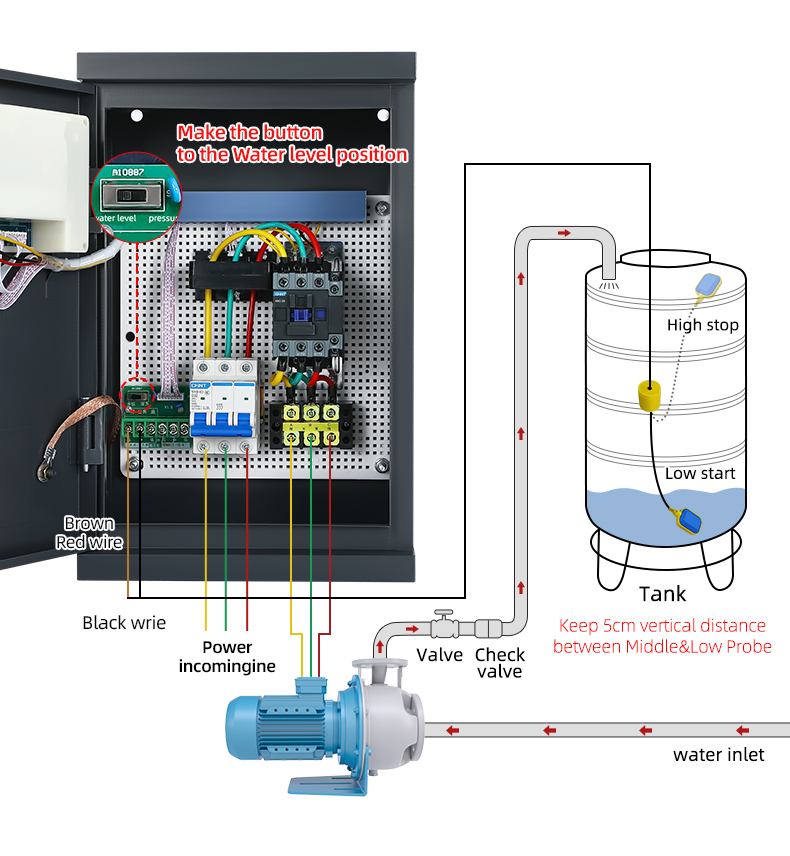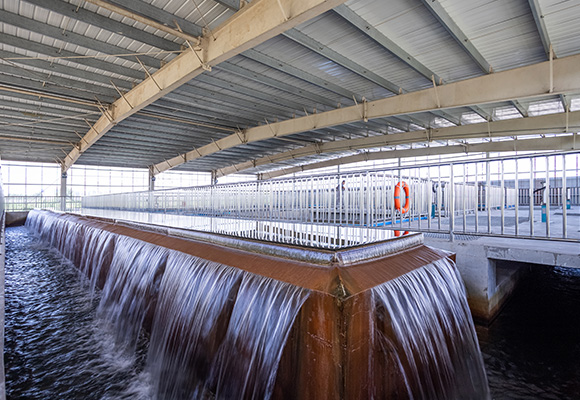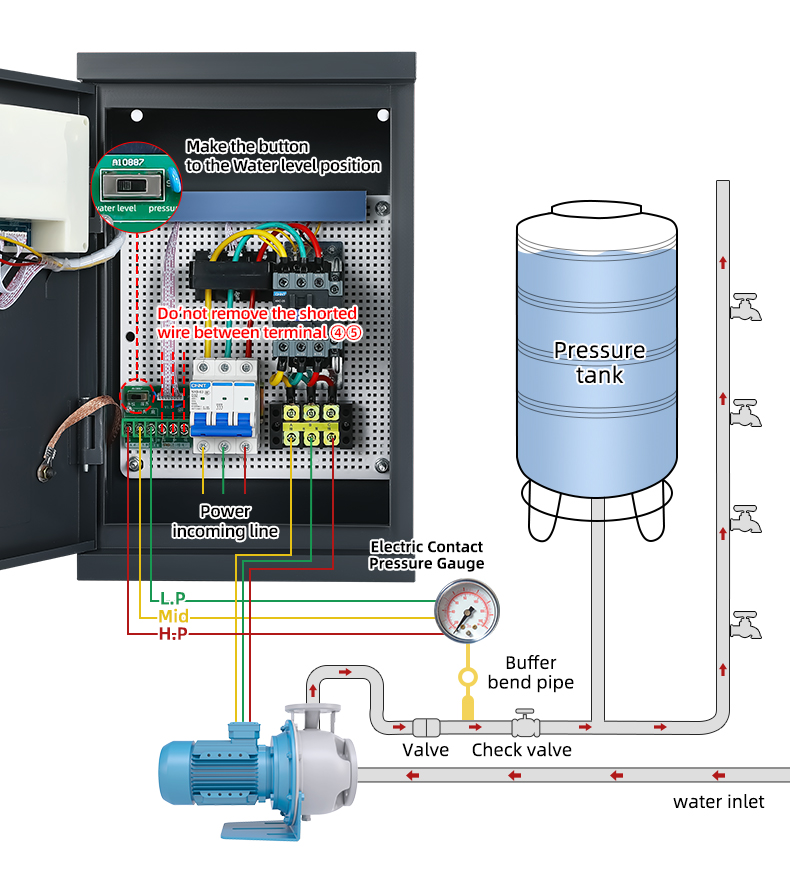Sewage systems are crucial for maintaining sanitation and environmental safety in urban and industrial settings. One of the key components of an efficient sewage system is the automatic water pump controller, responsible for optimizing wastewater transfer and pump operation. With advancements in technology, automatic water pump controllers have become a game-changer in improving sewage system efficiency. These controllers provide numerous advantages, including efficiency, cost savings, environmental protection, and enhanced system reliability.

This article explores the significant benefits of using automatic water pump controllers in sewage systems and why their adoption is essential for modern wastewater management.
1. Enhanced Efficiency and Automation
Traditional sewage pumps require manual intervention, which can lead to inefficiencies and delays in wastewater management. Automatic water pump controllers, on the other hand, optimize the operation by monitoring water levels in real-time and activating pumps only when necessary. This level of automation reduces human intervention, ensuring that sewage is managed promptly without constant supervision.
By integrating sensors, automatic water pump controllers detect sewage levels and adjust pump operation accordingly. This ensures that pumps work efficiently, preventing overflow or dry running, which can lead to mechanical failures. The automation provided by these controllers significantly improves the overall efficiency of sewage management systems, reducing response times and preventing blockages.

2. Cost Savings on Energy and Maintenance
One of the most significant advantages of using automatic water pump controllers is the reduction in energy consumption. Traditional pumps often operate continuously, leading to excessive power usage and increased electricity costs. Automatic controllers optimize pump operation by activating them only when needed, leading to significant energy savings.
Additionally, the optimized operation reduces wear and tear on pump components. Frequent manual operation often results in unnecessary strain on the motor and other mechanical parts, leading to higher maintenance costs. By preventing overuse and dry running, automatic water pump controllers extend the lifespan of the pump, reducing the frequency of repairs and replacements. This translates to lower operational expenses and increased cost-effectiveness over time.
3. Prevention of Sewage Overflow and Environmental Protection
One of the biggest challenges in sewage management is preventing overflow, which can lead to severe environmental and health hazards. Sewage overflow can contaminate water sources, spread diseases, and damage local ecosystems. Automatic water well pump control boxes play a crucial role in mitigating these risks by ensuring that pumps activate at the right time to prevent overflow.
By continuously monitoring sewage levels, these controllers detect potential overflow situations and trigger the pumps accordingly. Some advanced controllers even have alarms or remote notification systems that alert operators in case of emergencies. This proactive approach minimizes environmental risks and ensures that sewage systems comply with environmental regulations.

4. Remote Monitoring and Smart Integration
Modern automatic water pump controllers can be integrated with smart monitoring systems, allowing operators to monitor sewage systems remotely. This is particularly beneficial for large-scale sewage networks or industrial wastewater management, where constant manual supervision is impractical.
With IoT (Internet of Things) technology, automatic water pump controllers can be connected to a central monitoring system that provides real-time data on pump performance, sewage levels, and potential issues. Operators can receive alerts on their smartphones or computers, enabling quick responses to problems before they escalate. Remote monitoring not only enhances convenience but also improves overall system reliability and efficiency.
5. Improved Safety for Workers
Manual operation of sewage pumps can be hazardous for workers, exposing them to contaminated water, toxic gases, and dangerous environments. Automatic water pump controllers significantly reduce the need for direct human intervention, thereby enhancing worker safety.
For example, in confined sewage tanks or deep underground pumping stations, manual control poses serious risks, including exposure to hazardous gases like methane and hydrogen sulfide. With automatic controllers in place, workers can operate and monitor the pumps from a safe distance, reducing the likelihood of accidents and health issues.
6. Adaptability to Different Sewage System Needs
Automatic water well pump controllers are highly adaptable and can be customized to fit various sewage system requirements. Whether it's a municipal sewage treatment plant, an industrial wastewater facility, or a residential sewage system, these controllers can be programmed to operate according to specific needs.
Some controllers are equipped with multiple settings, allowing them to adjust pump speed and operation based on sewage flow rates. This adaptability makes them suitable for both high-capacity sewage treatment plants and small-scale wastewater systems, providing flexible solutions for diverse applications.
7. Extended Pump Lifespan and Reduced Downtime
Pumps that operate inefficiently or under excessive strain tend to wear out quickly, leading to frequent breakdowns and increased downtime. Automatic water pump controllers regulate pump usage, preventing conditions like dry running or excessive load, which are major causes of pump failure.
By ensuring optimal operation, automatic water pump controllers extend the lifespan of the pump, reducing the frequency of replacements. This is particularly beneficial for large-scale sewage systems where replacing pumps can be costly and time-consuming. Reduced downtime also means continuous and reliable sewage management, preventing service disruptions in residential and industrial areas.
8. Contribution to Sustainable Wastewater Management
Sustainability is a growing concern in modern wastewater management. Automatic water pump controllers contribute to sustainability by optimizing energy usage, reducing water wastage, and minimizing environmental impact. By preventing overflow and efficiently managing sewage flow, these controllers help maintain cleaner water bodies and reduce pollution.
Additionally, the integration of renewable energy sources with automatic water pump controllers further enhances sustainability. Some systems can be powered by solar energy, reducing dependence on conventional electricity and lowering the carbon footprint of sewage treatment operations.

Conclusion
The adoption of automatic water pump control boxes in sewage systems offers a wide range of benefits, including improved efficiency, cost savings, environmental protection, remote monitoring, and enhanced worker safety. By automating pump operation, these controllers ensure reliable sewage management while minimizing maintenance needs and energy consumption.
As wastewater management continues to evolve, investing in advanced technologies like automatic water pump controllers will be crucial for building more resilient and sustainable sewage systems. Whether for municipal, industrial, or residential use, these controllers provide a smart, efficient, and cost-effective solution for modern sewage infrastructure. Their role in preventing overflow, reducing operational costs, and promoting environmental sustainability makes them an essential component of any well-functioning wastewater management system.























